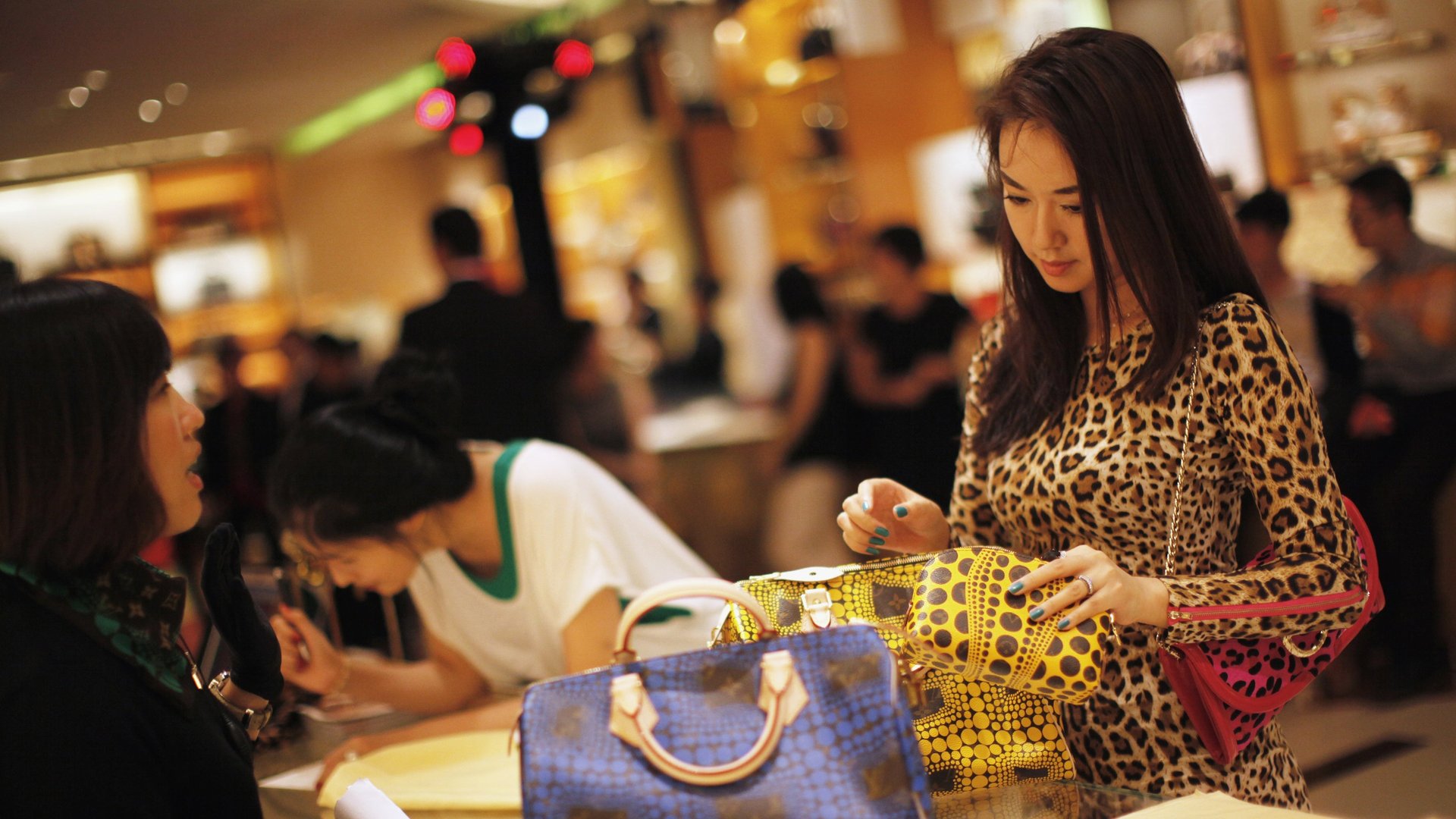China wants its people to buy more Western goods—in China
China doesn’t mind that its people love foreign goods. It just wants them to buy more of those goods in China.


China doesn’t mind that its people love foreign goods. It just wants them to buy more of those goods in China.
In a bid to boost domestic spending and to kickstart its slowing economy, the Chinese government has revealed plans to cut import duties again, having previously slashed them back in May. According to China’s Finance Ministry, the goal is to give ”domestic consumers more choices in shopping while helping the country expand domestic demand.”
Set to take effect on Jan. 1, the cuts will lower prices for some 800 imported products (paywall), including bags, clothes, scarves, and sunglasses. Given that Chinese customers are the top buyers of luxury products in the world, this might be especially meaningful to fashion’s biggest brands—if it weren’t for the fact that the cuts probably won’t dent prices enough to significantly change shopping habits.
Currently, Chinese shoppers buy many of their foreign goods while traveling or through agents, or “daigou,” who purchase the goods abroad and ship them back, evading import duties. Consulting firm Bain and Company estimates that 70% of luxury purchases by Chinese shoppers happen this way. China’s government, meanwhile, loses out on collecting taxes from such transactions.
To limit the role of daigou and ensure more domestic buying, the government is also reportedly considering more severe punishments for the agents, including legal punishment.
Shopping for luxury abroad can offer Chinese customers a better product selection, greater assurance of authenticity, and perhaps most importantly, lower prices, especially for fashion. On Dec. 9, Bomoda, a consumer intelligence firm, ran comparisons on the costs of different fashion products in China versus the US for Quartz. It found that, in China, a Tory Burch bag was 41% more expensive than in Europe. The same was true of a Roberto Cavalli dress (35%), a pair of Salvatore Ferragamo pumps (30%), and a Burberry scarf (20%).
Taxes account for 70% of the price difference, according to a 2013 report on the Chinese market for luxury goods by investment bank Exane BNP Paribas. But import duties themselves are just a portion of that—China also charges a value-added tax (VAT) and a consumption tax.
The other 30% of the price markup in China, however, is beyond even Beijing’s control. It’s ”simply higher prices,” according to the report.
“Ultimately, luxury goods in China are priced at a premium for a bundle of reasons,” Brian Buchwald, CEO of Bomoda, tells Quartz. “Pulling out a piece such as import duties will help. But it will not do away with the discrepancy in nearly all cases.”